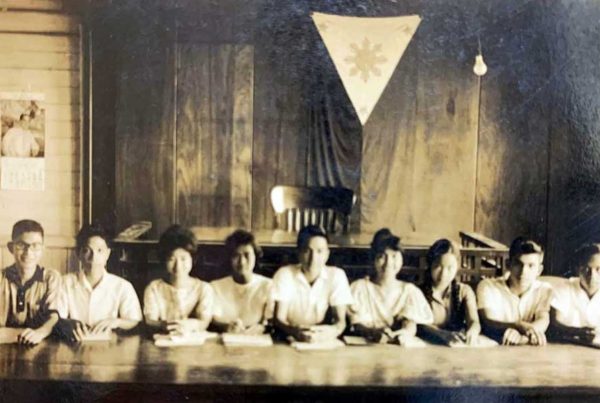Matutina on my mind

By Rex Catubig
WAY before Bangus Festival was conceptualized, Pista’y Dayat was the summer event people flocked to in Dagupan. The mile-long Tondaligan Ferdinand–erstwhile known as Bonuan Blue Beach–was where all vehicles led to and where the action happened.
Along the roadway within a stone’s throw from the amphitheater were a couple of small thatched huts called talipapa which doubled as carinderia and served charcoal grilled bangus, Pioneer among these were Lilay’s and Matutina’s–yet unidentified by signage (Coca-Cola that provided store signboards had yet to recognize their customer appeal and hence earning potential for their product).
But Dagupan’s yuppies, notably the Jaycees and other adventurous friends in search of quaint places to hang out in, soon discovered these out-of-the way rustic food stalls and made them their own, where you could knock even after midnight and have them open up.

It was the onset of the 80’s and an iconic film and TV character was named Matutina–whose trademark trait was her irksome yet engaging high-pitched voice. It was the same high-pitched voice that earned Aling Lydia, one of the stall owners, the moniker Matutina or Matuts as the regulars began endearingly calling her. Man-about-town Robert Erfe Mejia and bon vivant Chito Samson are credited for having bestowed the honorific term of endearment which Aling Lydia had gladly adopted, making it a byname in the Tondaligan circuit. In fact, the unlikely patronage of the city folks unconsciously promoted the place as they brought along friends during after-party wee hours to partake of down home, humble, comfort fare such as ginisang corned beef, itlog maalat, scrambled eggs, barbeque, and of course bangus–be it inihaw or fried daing style.
Everything was impromptu, informal and unapologetic. There was no menu (that’s unheard of in the talipapa circle). So what the customers ordered became the menu for the rest of the night. Matuts was happy enough to oblige and prepare whatever her campers wished.
The place itself had only one small, rickety, plain uncovered table and two wooden benches flanking it, that squatted on the ground. The plastic table cover would be a later improvement. But dining in such a humble setting sans amenities was always magical. Amid loud banter and laughter, punctuated by Matuts’ falsetto asides, the simple dinner always turned into a royal feast.
Lighted only by a lone kerosene lamp, the place blazed with a brightness that couldn’t be equaled until now by neon marquee and LED lights,
Time, there, seemed to stand still. There was no hurried pace and waiters in a flurry. The night lasted for as long as you could shake off being sleepy which one never was. Matutina would patiently wait up, eavesdropping on conversations—which you could be sure would be relayed to your other friends the next night. You know it’s time to go when the high-pitched voice has quieted and mosquitos would start sucking up on your legs.
Anyway, there would always be other nights and longer nights and even longer days to make memories of.
There was only one season at Matut’s and that was endless summer–even when April showers would start to visit and make the thatched roof leak.
It’s where summer was forever and a day.
Share your Comments or Reactions
Powered by Facebook Comments










